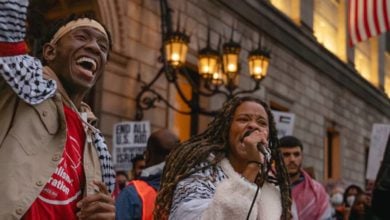Cambridge Police shot and killed 20-year-old Bangladeshi UMass Boston student Arif Sayed Faisal in broad daylight on Jan. 4 in Cambridge, Massachusetts. Almost three months later, city officials still have not released the names of the five officers involved, and refuse to answer a growing movement’s questions or demands for justice.
Faisal was shot five times in the chest. The police officer who pulled the trigger is currently on paid administrative leave. Organizers in the Justice for Faisal campaign have been fighting for transparency and accountability with four main demands:
- Release the names of the officers involved
- Release the unredacted police report
- Immediately fire the officers involved
- Prosecute the officers to the full extent of the law
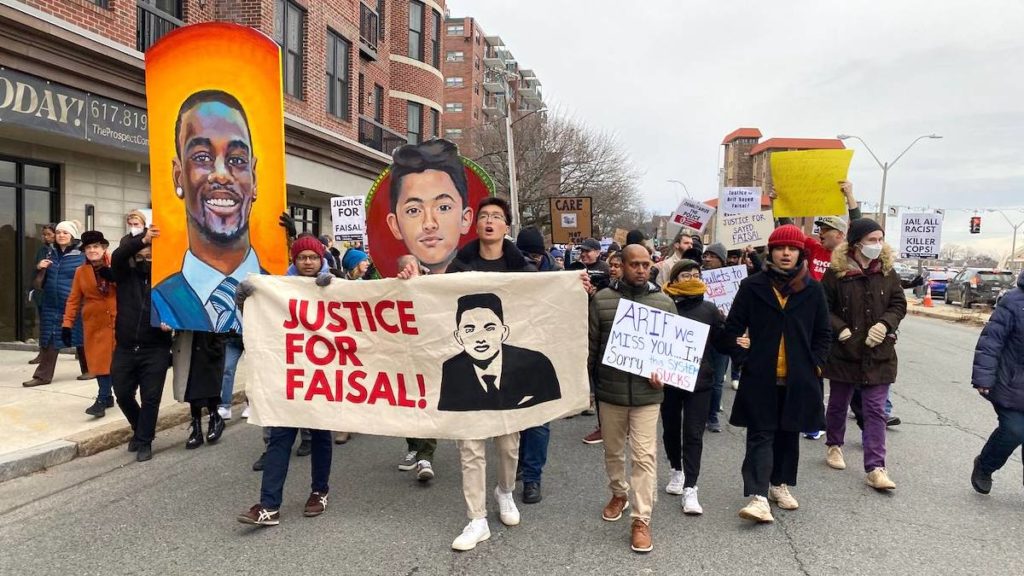
City Manager Yi-An Huang has the power to meet these demands. But at a recent meeting with student leaders and organizers, Huang revealed that he was advised to wait out the movement for justice. He said the killing of Faisal was not “egregious misconduct” — meaning, not “egregious” enough to release the names of the officers who killed him.
Not the danger police and media painted him to be
“As a community person, as a friend of Arif Faisal, I want to express that this killing shouldn’t have happened, no matter what,” said Mohammed Hossain, assistant general secretary of the Bangladesh Association of New England. Faisal was killed during an alleged mental health crisis.
Those who knew Faisal remember him fondly. His high school teachers noted that he was a kind and conscientious student, eager to get involved in all the programs offered to immigrant students. He was a talented artist, contributing to the Mystic Mural Project, and he custom painted sneakers as a hobby. He worked at the local CVS in Central Square to support his family, and he liked skateboarding and going to the gym with his friends.
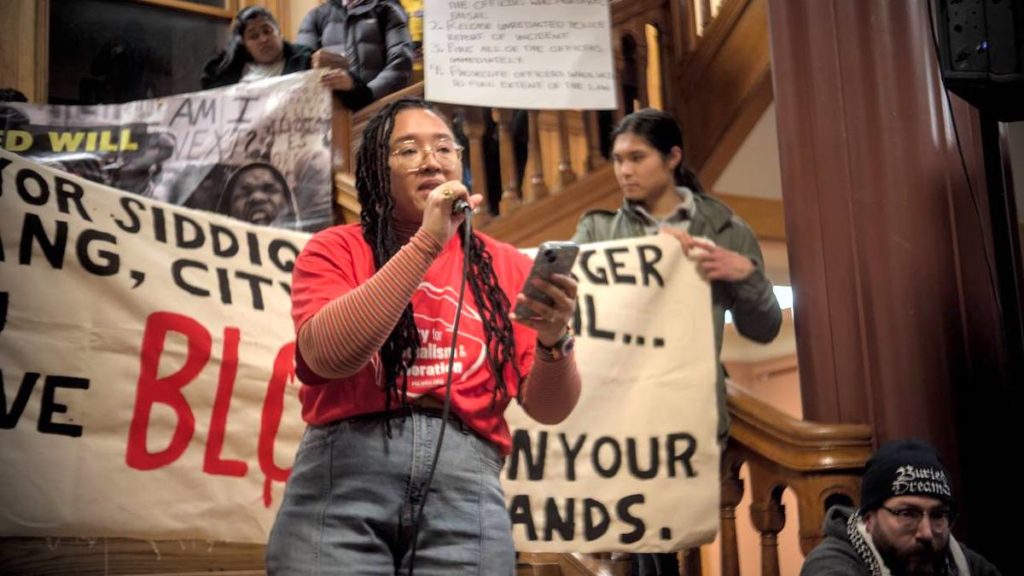
“What the police officer did is truly wrong,” said Faisal’s close friend Amtiaz Uddin. “As a community member if you do anything wrong, they take action by the law right away. They should do it right away. We’re asking for justice.”
Cambridge officials attempt a coverup, community fights back
In the first two weeks after Faisal’s killing, hundreds of people joined mass protests led by BANE, the Party for Socialism and Liberation, Safe Schools Somerville, Boston South Asian Coalition and other organizations. Demonstrators rallied at Cambridge City Hall, marched across Cambridge, Boston, and Somerville through snow and rain, and protested outside the Cambridge Police Department.
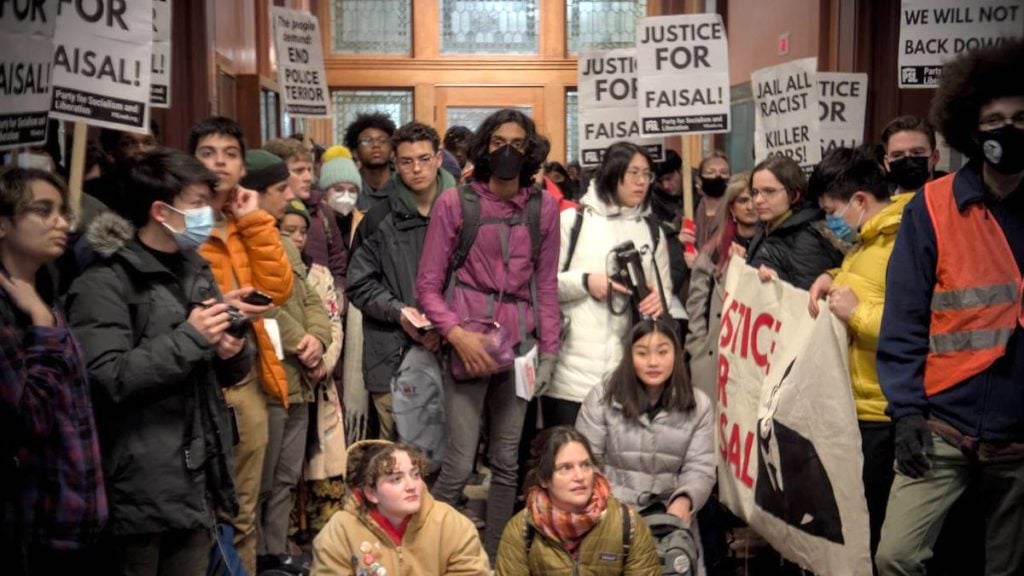
When Cambridge City Council refused to acknowledge the movement and tried to continue with business as usual, organizers shut them down. On Jan. 24 and again on Feb. 7, community members interrupted City Council meetings and demanded answers. The mayor and city councilors walked out of the meetings, and hid from their constituents on Zoom.
On Feb. 27, over 200 students and dozens of community members filled the lobby of City Hall for hours to hold a teach-in about the history of student movements and origins of the police. While city officials hid in their offices, the space reverberated with calls for justice.
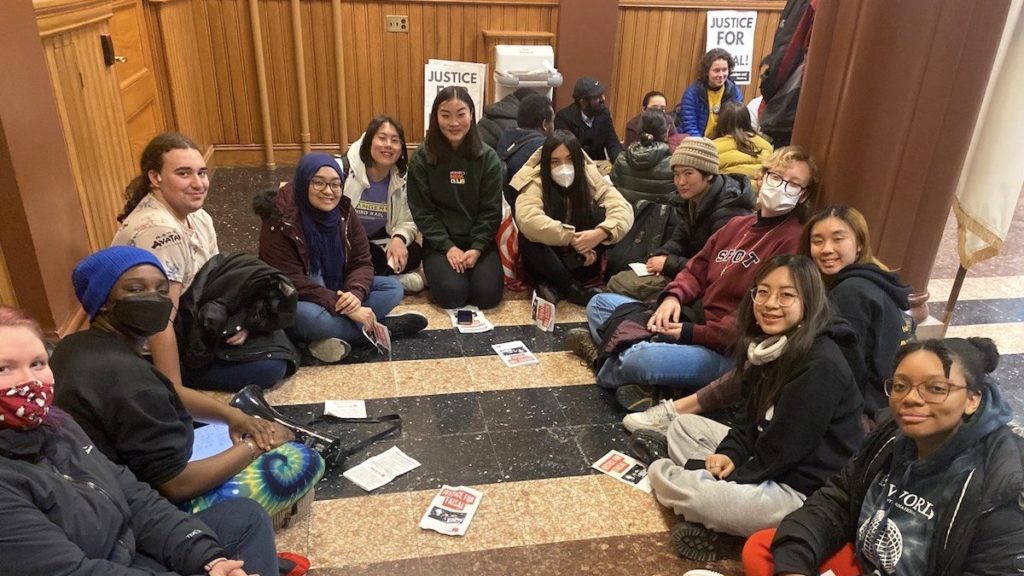
The pressure of the movement compelled Mayor Sumbul Siddiqui to state that she “personally believe[s releasing the names] is an important step for the sake of transparency,” although she insists she doesn’t have the power to take this step. City Manager Huang and Police Commissioner Christine Elow doubled down on protecting the killer cops, saying that the police department “has not identified significant violations” and that the officer who killed Faisal has a “right to privacy.” Faisal and his family were not afforded that same right when Cambridge police demonized him in the media after he was killed.
Protest pressure leads to piecemeal reforms
The movement has not been distracted by this “good cop, bad cop” routine, or by the city implementing reforms that fail to address the community’s demand for accountability.
The City of Cambridge recently announced they will be implementing body cameras with no clear timeline. Body cameras are not a demand of the protesters because there is no evidence nationally that body cameras stop the police from brutalizing or killing people.
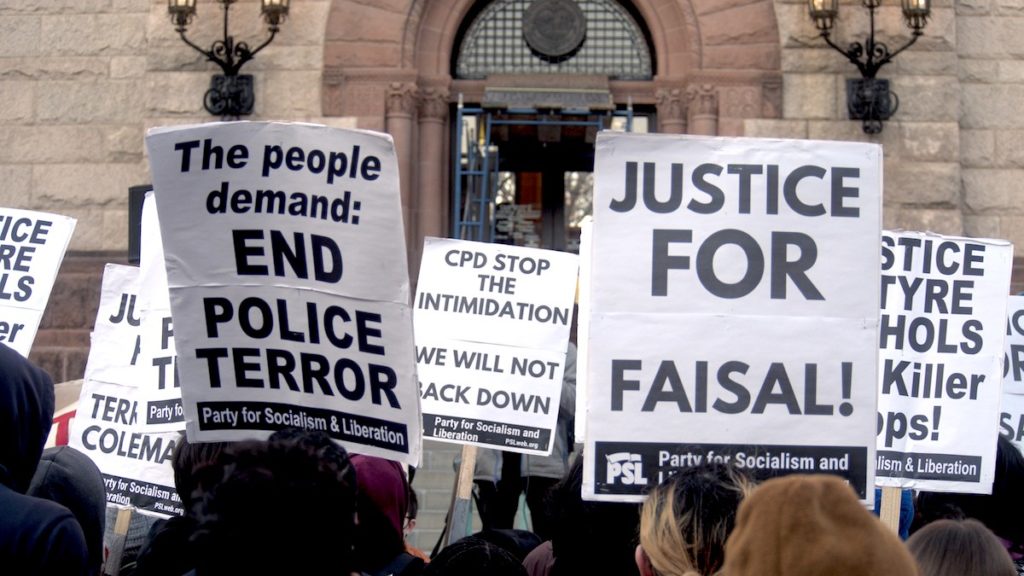
City officials have also championed the hiring of the nonprofit Police Executive Research Forum — whose board of directors is made up entirely of police officers — to review their police department practices. Protesters say that police investigating themselves is not accountability.
Struggle for justice forces city officials to the table
PSL organizers and student leaders at UMass Boston, MIT, Tufts, Harvard, Emerson, and other campuses created organizing committees to bring more young people into the movement.
After two months of escalating pressure, the city agreed to meet with community organizers and student leaders to discuss their demands for accountability and transparency. On March 21, a negotiating team of PSL organizers, student leaders and community members delivered over 1,000 petition signatures supporting their demands and sat down to meet with Huang and Interim Director of Community Safety Department Elizabeth Speakman. Dozens of people rallied and chanted in support outside for hours.
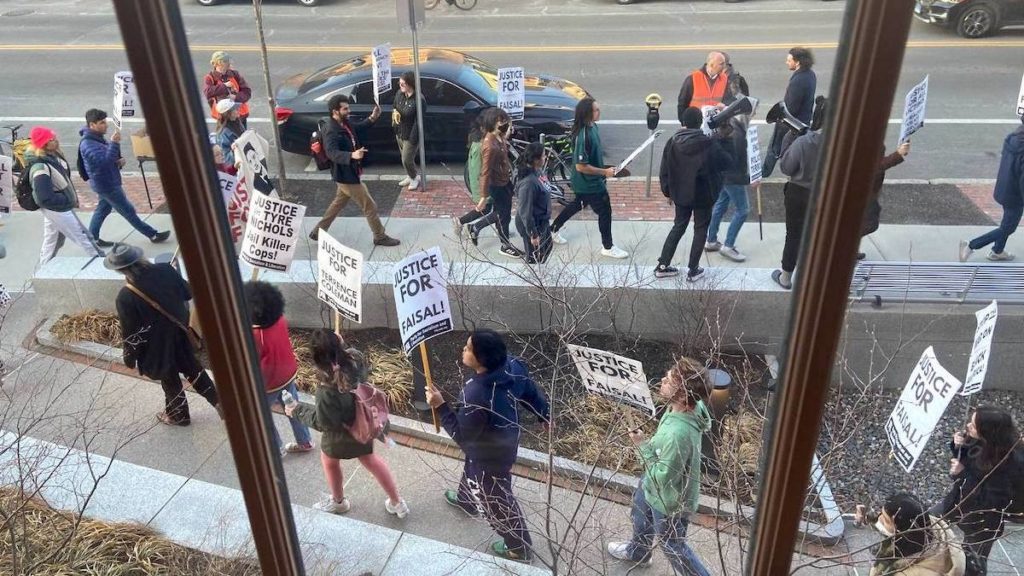
“We went to the meeting hoping that the city was ready to deliver justice for Faisal and his family. Instead, the city acted as if the meeting was a replacement for any meaningful progress on the demands of our movement,” said MIT student and PSL organizer Susanna Chen. “We consider this to be nothing more than a theatrical gesture, which will fail because the people demanding justice will not stop.”
‘We’re not going away. We’re getting bigger!
Immediately after the meeting, PSL organizer and lead negotiator Joe Tache addressed the crowd of protesters: “What we need to do is everything we’ve been doing the past two months, but bigger. Because what we’re doing is working. That’s why we had this meeting.”
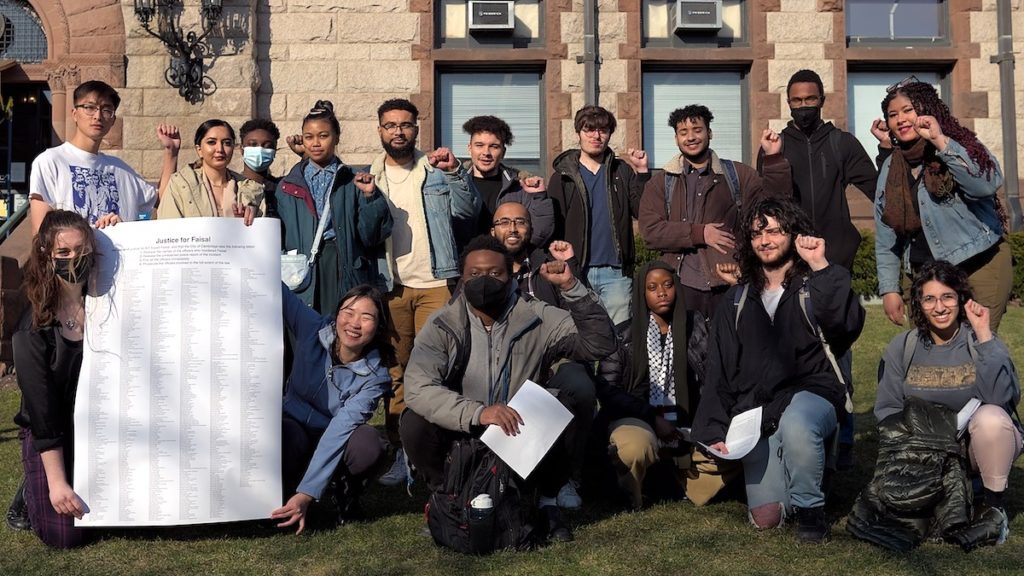
The city’s strategy to wait out the movement is failing. After more than ten weeks of fighting, not only has the fight for justice for Faisal persisted, it has grown stronger, broader and more determined. Aman Khalifa, one of Faisal’s good friends, said, “We want people to know about it in every state. We want everyone’s support, because when it’s more people, justice is served faster.”
“They were hoping we could have this meeting and they could play nice and tell us that they hear us, but they’re not gonna do our demands, and then we step back. But we’re not gonna do that,” Tache said. “We’re not going away. We’re getting bigger!”





